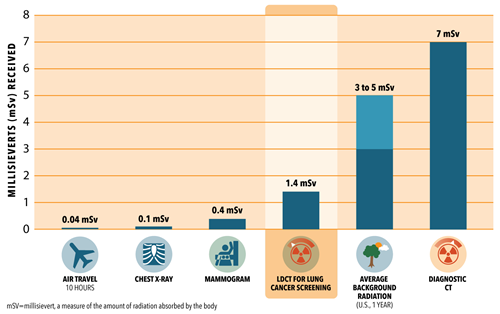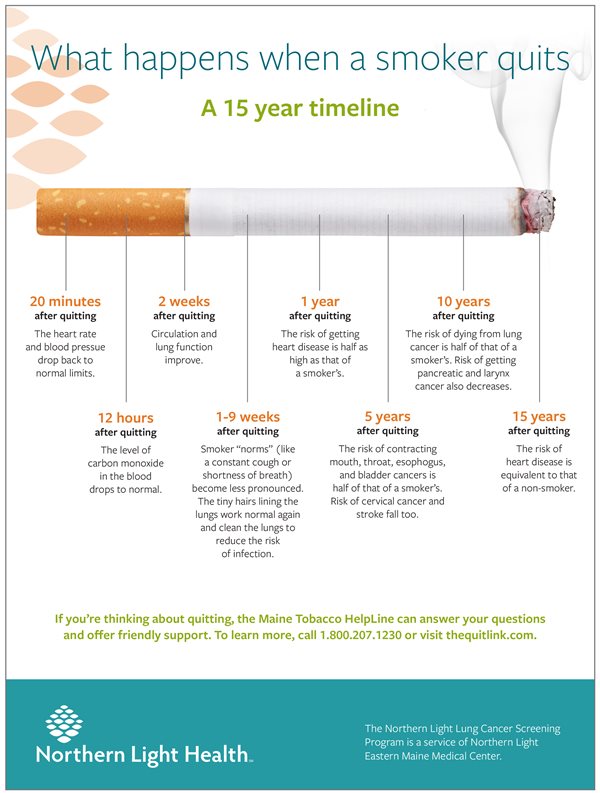Lung cancer screening is similar to other diagnostic screenings such as mammograms or colonoscopies. Early detection and diagnosis of lung cancer improves survival rates. As stated earlier, 75 percent of lung cancer diagnosis in our state are diagnosed at late stages with no treatment options available.
What does a Lung Cancer Screening entail?
Lung cancer screening is done through a low-dose CT scan (LDCT) to identify any lung nodules. The LDCT is

reviewed and recommendations are made by the radiologist. If normal, LDCT's are repeated annually until you no longer meet the qualifications. If a nodule is identified, you may be asked to repeat the scan in three-to-six (3-6) months, or you may be referred to a specialist.
CT scans are a noninvasive image of your chest. There are no needles involved. The scan takes approximately 10-15 minutes to complete. During the scan you will be exposed to a small amount of radiation, far less that what the average person is exposed to over the course of any given year. See the graphic at right for helpful information. Note: At this time, it is unknown how radiation from diagnostic testing impacts our health.
It's never too late to kick the habit.
If you are a smoker and want to quit, the benefits are almost instantaneous:

If you are interested in quitting smoking, the Lung Cancer Screening Program team is here to support you; however, it is not required to participate in the screening program. Of course, quitting smoking doesn’t just reduce your risk of developing lung cancer; it also greatly improves your overall health.
Will my insurance cover the cost of a screening?
Most insurance plans cover LDCT for lung cancer screening if you meet the criteria. Our staff will work with your insurance company to obtain approval for the CT scan and your appointment with our office.
OK. I’m sold. So what can I expect during my screening?
Before: You will meet with your healthcare provider to discuss the benefits and risks of screening. This is called a shared decision-making visit. You and your provider will make the decision about screening together. If you decide on screening, your healthcare provider will create a written order and refer you to a screening location. This location may be a hospital or another facility that offers LDCT screening. Your provider’s office may make an appointment for you, or a screening location will contact you to set up your appointment.
During: Limited preparation may be needed. You shouldn’t need to change your clothes, as long as they don’t contain metal. Don’t worry—there are no medicines or needles required for the screening. The LDCT procedure only takes a few minutes. You will lie still on your back on a table with your arms over your head while pictures are taken of your lungs.
After: A specialist will read your scan and report the results. Someone from the screening location or your healthcare team will call you to talk about the results.
For more information or questions about our Lung Cancer Screening Program please call 207.973.5822.
Read More